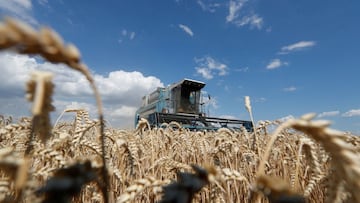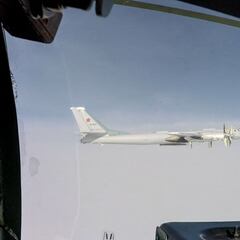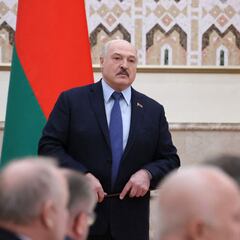What is Ukraine known for? What is Ukraine's biggest export?
Parts of the Ukrainian economy have been devastated in recent days as Russia launched a full-scale invasion. Ukraine is relied upon for crop imports across the world.


In terms of land mass Ukraine is the second-largest nation in Europe, behind only Russia. As well as its vast size Ukraine boasts a super fertile soil known as chernozem, from the Russian words for ‘black earth’, which is able to store more moisture and generate high agricultural yields.
It is this that has earned Ukraine the nickname “the breadbasket of Europe’ and it has the ability to provide food for at half a billion people. Around 32 million hectares of land is cultivated every year and crops form the bulk of Ukraine’s national exports.
More:
- Anonymous hack Russian TV
- American veterans fighting Russia in Ukraine
- Vladimir Putin lookalike: the innocent man scared for his life
- Republican senators criticised for potentially endangering President Zelesnkyy
What does Ukraine export?
In 2019 Ukraine ranked number 51 in the world in terms of total export value, but it is truly a world leader in terms of agricultural exports. Ukraine produces 18% of the world’s sunflower seed, safflower or cottonseed oil exports; 13% of corn production; 12% of global barley exports; and 8% of wheat and meslin.
In absolute figures, corn is the largest Ukrainian export market and brings in a massive $4.77 billion every year. Seed oils ($3.75bn), iron ore ($3.36bn) and wheat ($3.11bn) are also major export markets for Ukraine.
On the left is a field of wheat, one of Ukraine's principal crops, beneath a blue sky, on the right is the Ukrainian flag.
— Ariaa® Jaeger (@AriaaJaeger) February 26, 2022
Over 70% of the land in Ukraine is farmland...
This is why it is so valuable to Russia. Via Peter Hoyt pic.twitter.com/kG0HfIOXTD
The Ukrainian sunflower oil export market is particularly vital to global trade and it makes up more than half of total worldwide exports every year.
Not only does it produce a lot but it is responsible for the vast majority of crop imports for many nations. China buys more corn from Ukraine than from any other country and many nations in southeast Asia are hugely reliant on Ukrainian crops to feed their populations.
Russian invasion of Ukraine is a real threat to global supply
The only European country to rival Ukraine in the production of crops like wheat, corn and sunflower is Russia. As such the ongoing invasion of Ukraine poses a serious threat to the vital supply of stable foods which much of the world relies on.
The fighting disrupts the usual process of cultivating, harvesting, selling and transporting the crops that are so vital both for the Ukrainian economy and for nutritional demands of nations all over the world. Russia too will experience disruption to its crop production if the invasion is prolonged and is also receiving severe economic sanctions at the moment.
A lot of attention on oil and gas, but agricultural markets are even more concerning due to the Russian invasion of Ukraine. Wheat and corn fast climbing, and so are all kinds of vegetable oils. The European benchmark for milling wheat has set a fresh all-time high this morning
— Javier Blas (@JavierBlas) March 1, 2022
Between them, Ukraine and Russia account for 70% of Egypt and Turkey’s wheat supply. While Ukraine is a major exporter to Asia, Russia provide a large percentage of the wheat demands for sub-Saharan Africa.
Related stories
The implications for these nations if the supply of crops is disrupted or the cost were to rise is enormous. Experts have warned that global food price rises and a surge in hunger across the world are real possibilities in the near future.
“It’s yet one more instance of conflict surfacing in the world at a time when the world just can’t sustain it,” said the World Food Programme’s senior spokesperson Steve Taravella. “Hunger rates are rising significantly globally, and one of the largest drivers of hunger is manmade conflict.”

